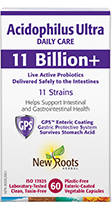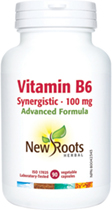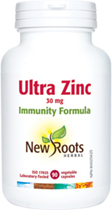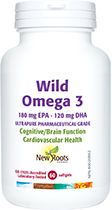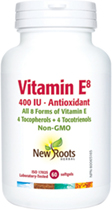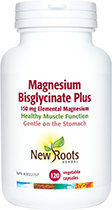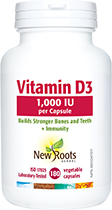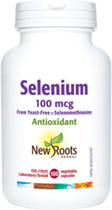Autoimmune Health—Top 3 Supplements to Restore Immune Function
A healthy immune system is self-recognizing—it can recognize healthy cells as “self”
and foreign cells as “nonself.” Bacteria, fungi, viruses, chemicals, particles, and
damaged or diseased cells are examples of what a healthy system recognizes as
nonself. Normally, exposure to a foreign cell triggers an immune reaction, and white
blood cells (lymphocytes) and/or antibodies are produced. An autoimmune reaction
(from Greek αὐτός [autós, “self, one’s own”]) is an immune reaction directed towards
one’s own cells. In other words, in autoimmune conditions, the body fails to recognize
self from nonself, and creates lymphocytes and antibodies against cells naturally
present in the body (called autoantibodies).
To understand how autoimmune reactions happen, we need to take a closer look at
how the immune system is created during early life.
The immune system is part-inherited: Newborns inherit a crucial part of their immune
system (antibodies IgG, IgA, IgM, IgD, and IgE) from human milk. The most abundant
antibody in human milk is IgA, specifically secretory IgA, found in large amounts
throughout the digestive and respiratory systems.
IgA deficiency is associated with several autoimmune conditions:
- Graves disease (GD)
- Systemic lupus erythematosus (SLE)
- Type 1 diabetes (T1D)
- Celiac disease (CD)
- Myasthenia gravis (MG)
- Rheumatoid arthritis (RA)
Healthy IgA levels, established early in life from breast-feeding, also offer protection
from developing digestive health issues (infections, SIBO, dysbiosis) and respiratory
issues such as asthma later in life.
The immune system is part-created: Newborns inherit bacteria from their immediate
environment, which enables other bacteria to colonize. Depending on the environment,
these bacteria may be beneficial or pathogenic. An infant’s microbiome (or bacteria
living inside and on the surface of the body) go through successive colonisations over
time.
Vaginally delivered infants become populated with beneficial Bifidobacteria species in
the gut and Staphylococcus aureus on the skin. Disruption of the normal progression
(such as C-section delivery) may have developmental consequences with autoimmune
and metabolic pathologies such as obesity.
Hormonal Factors?
Autoimmune conditions are highly prevalent in women v. men—8:1 or 10:1, depending
on the condition.
There are more than 80 different types of autoimmune diseases. The most common are:
- Graves’ disease (hyperthyroid)
- Hashimoto’s thyroiditis (hypothyroid with spells of hyperthyroid)
- Systemic lupus erythematosus (lupus)
- Type 1 diabetes (juvenile or early onset)
- Multiple sclerosis (MS)
- Rheumatoid arthritis (RA)
At least 85% of thyroiditis, systemic sclerosis, systemic lupus erythematosus, and
Sjögren syndrome patients are female. This suggests a possible hormonal
relationship to immune function.
Testing: Autoimmunity is detected and measured through blood autoantibody levels
to determine immune activity levels. It is a good idea to track your antibody levels
and get a copy of your results before, during, and after treatment to monitor your
condition and response to therapy—whether natural or allopathic.
Therapeutic Approach: A multilevel, multisystem approach to reestablish and
maintain functionality is the aim of comprehensive naturopathic treatment plans.
- Hormone Health: Identify imbalances and rebalance.
- Liver and Kidney: Support elimination of immune complexes through these
channels - Establish healthy digestive function and gastrointestinal mucosal function

Top 3 Supplements to Restore Immune Function
Selenium for Hashimoto’s Thyroiditis
Hashimoto’s thyroiditis is the most prevalent autoimmune disease and the most
common cause of hypothyroidism (low thyroid function). Studies have shown a
link between Hashimoto’s thyroiditis occurrence and deficiency of the mineral
selenium in the diet. The thyroid gland is responsible for metabolic regulation of
the entire body, so slowing thyroid function affects each and every function in the
body.
The thyroid is particularly vulnerable to autoimmune conditions for a few reasons:
- Increased susceptibility to oxidative stress
- Unique micronutrient requirements (iodine, selenium, zinc, vitamin D, vitamin A)
- Genetic factors
For autoimmune thyroid conditions, selenium supplementation (200 mcg per day)
can:
- Protect thyroid from oxidative damage to prevent thyroid conditions in
susceptible individuals (family history, exposure to stress, radiation, heavy
metals, etc.) - Act as an immune modulator by controlling T-cell function in autoimmune
conditions - Displace heavy metals mercury and cadmium, which play a role in the
development of autoimmune thyroid disease - Reduce antithyroid antibody levels (anti-TPO, anti-Tg)
- Reduces Grave’s ophthalmopathy
Note: Individuals in populations with low iodine status should avoid selenium
supplementation until iodine levels are normal.
Vitamin E for Multiple Sclerosis (alpha-Tocopherol)
Vitamin E (alpha-tocopherol) is a fat-soluble antioxidant vitamin that regulates
immune function.
Multiple sclerosis (MS) is a serious neurological autoimmune disease which
commonly affects young adults and can be debilitating in later stages, with
loss of neurological function due to demyelination of the spinal nerves.
Studies done on adult female mice show promise of vitamin E as a potential
future treatment for MS in humans.
At a dose of 100 mg/kg, vitamin E (alpha-tocopherol) suppressed the
proliferation of T cells and the Th1 response, resulting in:
- Reduced severity of symptoms
- Delayed progression of condition
- Reduced inflammation and demyelination reaction in the spinal cord
Vitamin A for Rheumatoid Arthritis (All-Trans Retinoic Acid, ATRA)
Vitamin A has three active forms: retinal, retinol, and retinoic acid. Retinoic acid
has been shown to modulate immune-system activity by controlling:
- Gene expression of specific proteins related to immune function;
- Gastrointestinal balance between immunity and tolerance; and
- T-cell activity (migration to target sites, maturation, differentiation into
Th1, Th2, Th17).
Studies done on mice show promising results for rheumatoid arthritis using all-
trans retinoic acid (ATRA). One study reported lowered arthritis scores and a
34% reduction in joint damage at a dose of 0.5 mg of ATRA three times per
week for 35 days.
Other Supplements Beneficial for Treatment
of Autoimmune Conditions to Consider
B vitamins, Zinc, Magnesium, Vitamin D, EFAs, and
Probiotics
Autoimmune diseases are complex conditions which can have serious health
implications. Prevention, treatment, and management of the illness are possible
with naturopathic medicine. Therapeutic goals include reducing the progression
of the condition, minimizing the impact of symptoms on activities of daily living,
and ultimately restore immune system balance. Most conditions do require a
thorough case by case assessment, since autoimmune conditions vary widely in
symptom progression from individual to individual.
 Angeli Chitale, BSc, ND
Angeli Chitale, BSc, ND
Dr. Angeli Chitale is a licensed naturopathic doctor with
additional training and certification in treatment of both
thyroid and endocrine conditions including fertility for
men and women.
www.restorativemedicine.ca

 Stores
Stores
